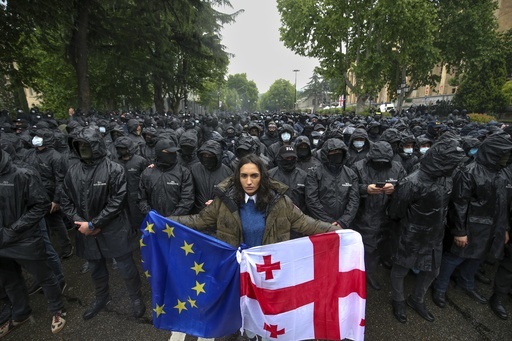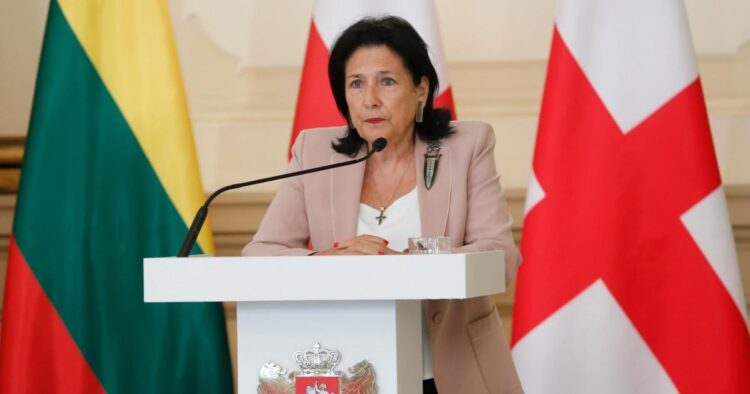In a controversial move, Georgian President Salome Zourabichvili publicly condemned a ‘foreign influence’ bill passed by the country’s parliament. The bill, which critics argue poses a significant threat to free speech, has drawn sharp criticism from both domestic and international quarters.
Zourabichvili’s denunciation of the bill came in an interview exclusively with The Associated Press, where she minced no words in lambasting the ruling Georgian Dream party for spearheading the legislation. The bill, besides being viewed as an assault on free expression, is also perceived as jeopardizing Georgia’s ambitions of EU accession.

The streets of the Georgian capital have been engulfed by massive demonstrations, with throngs of protesters converging outside the parliament building to voice their discontent. The passage of the bill on Tuesday, despite vehement opposition from the United States and the European Union, has further exacerbated tensions within the nation.
READ MORE: “EU Calls on Georgia to Revoke Controversial ‘Foreign Agent’ Bill”
The President, increasingly at odds with the governing party, has pledged to utilize her veto power to block the bill’s enactment. However, Georgian Dream holds a commanding majority in parliament, rendering Zourabichvili’s veto potentially futile.

The contentious bill has sparked a broader debate over the delicate balance between national sovereignty and international influence. Critics argue that the proposed legislation could stifle dissenting voices and curtail democratic freedoms, casting a shadow over Georgia’s democratic credentials.
READ MORE: “Georgia Adopts Foreign Agents Law Amid Brawls And Protests”
Responding to mounting pressure, Georgian authorities find themselves at a crossroads, torn between appeasing domestic demands for greater autonomy and maintaining favorable relations with Western allies. The outcome of this standoff will undoubtedly shape Georgia’s trajectory, both domestically and on the international stage, in the coming weeks and months.

















Comments